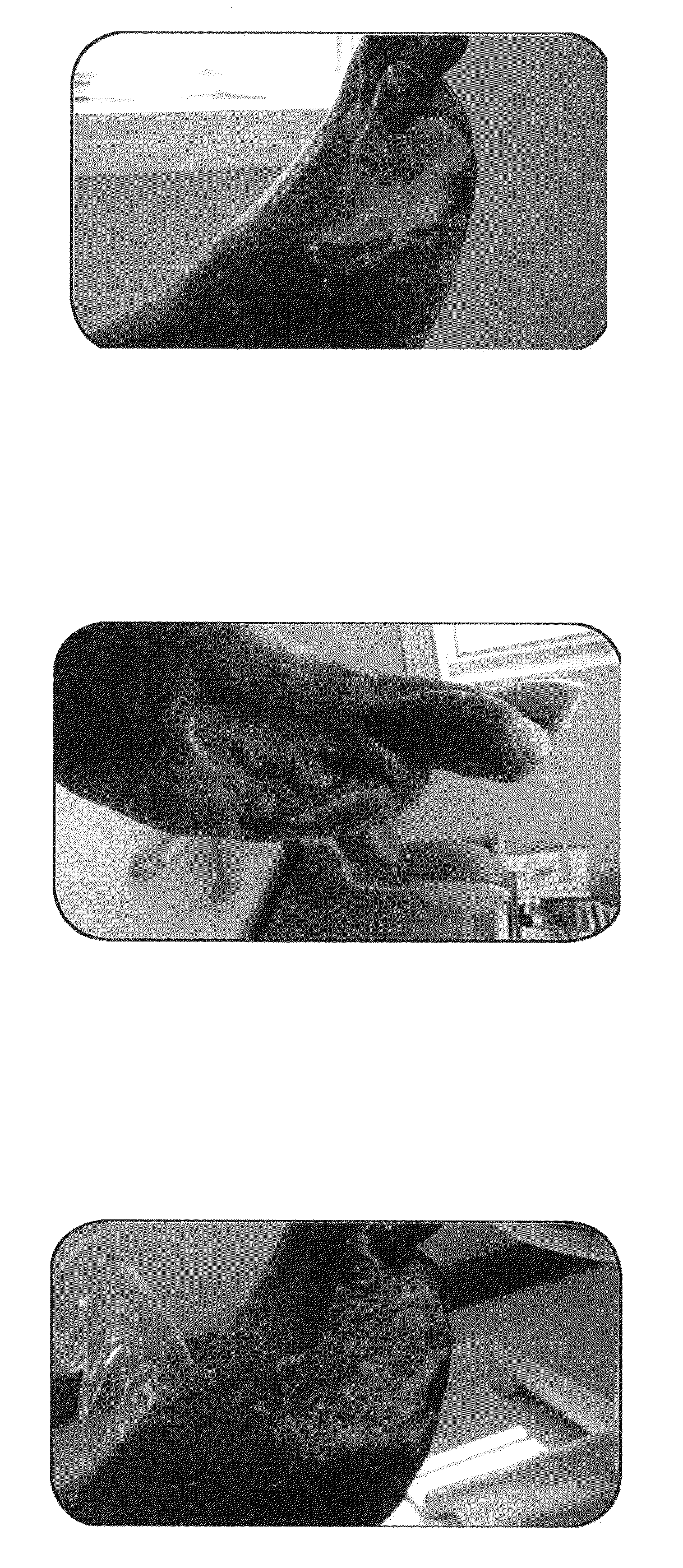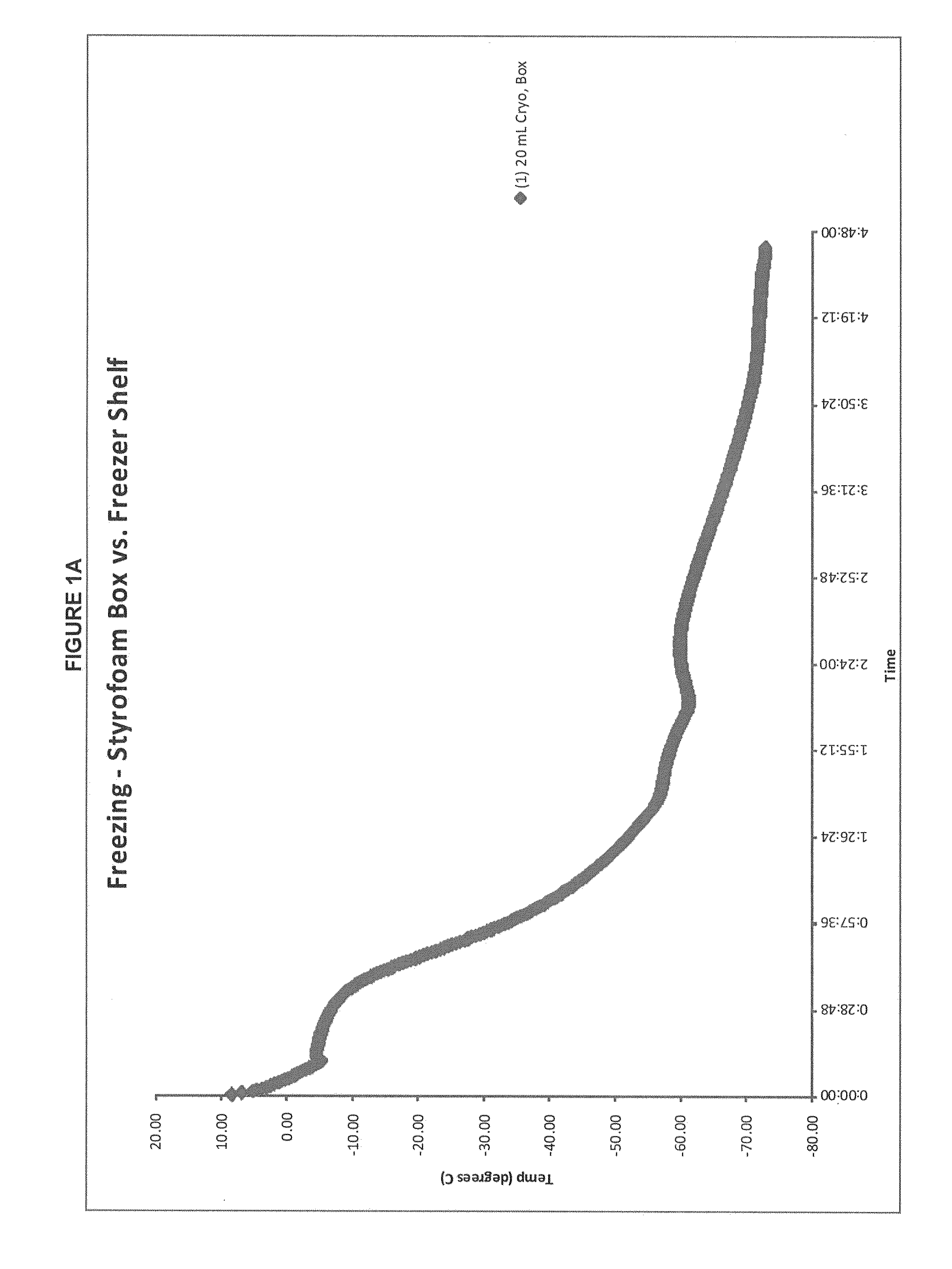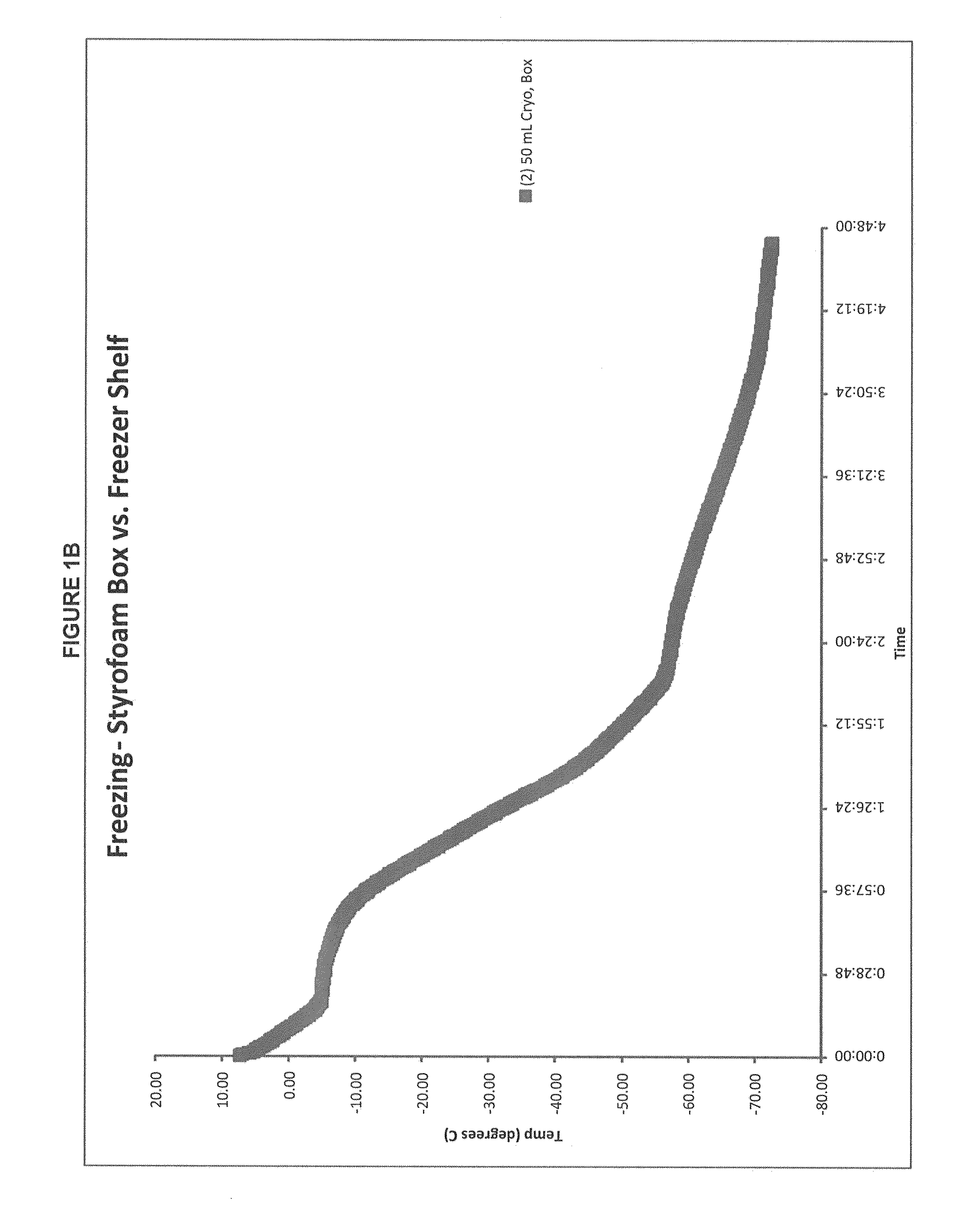Methods of manufacture of immunocompatible amniotic membrane products
a technology of amniotic membrane and amniotic fluid, which is applied in the direction of embryonic cells, drug compositions, peptide/protein ingredients, etc., can solve the problems of insufficient cell viability to bestow biological effect, increase the risk of disease transmission, and inability to provide sufficient cell viability to achieve the effect of superior wound healing
- Summary
- Abstract
- Description
- Claims
- Application Information
AI Technical Summary
Benefits of technology
Problems solved by technology
Method used
Image
Examples
example 1
Characterization of Placental Membranes
[0315]Cells in placental membranes were characterized by Fluorescence Activated Cell Sorting (FACS) demonstrated the presence of stromal cells (Mesenchymal Stem Cell-like cells) in addition to fetal epithelial cells and fibroblasts.
[0316]One unique characteristic of the presently disclosed placental products is the presence of MSCs, which have been shown to be one of three types of cells (in addition to epithelial cells and fibroblasts) that are important for wound healing. Placental membranes secrete a variety of factors involved in wound healing such as angiogenic factors, factors supporting proliferation and migration of epithelial cells and fibroblasts, factors attracting endothelial stem cells from blood circulation to the wound site, antibacterial factors, and others.
[0317]Evaluation of proteins secreted by examplary placental products of the invention in comparison to Apligraf and Dermagraft demonstrated a number of growth factors presen...
example 2
Exemplary Manufacturing Process of a Placental Product
[0318]In one embodiment, the present invention is a method of manufacturing a placental product comprising an amniotic membrane and optionally a chorionic membrane from placenta post partum. One such method is:[0319]a. Remove umbilical cord close to placental surface,[0320]b. Blunt dissect of the amnion to placental skirt,[0321]c. Flip placenta over and completely remove amnion,[0322]d. Rinse amnion in PBS to remove red blood cells,[0323]e. Rinse amnion once with 11% ACD-A solution to assist in red blood cell removal,[0324]f. Rinse amnion with PBS to remove ACD-A solution,[0325]g. Use PBS to remove any remaining blood from the amnion,[0326]h. Gently remove the connective tissue layer from the amnion,[0327]i. Place the amnion in PBS and set aside,[0328]j. Place the amnion into a bottle containing antibiotic solution and incubate at 37° C.±2° C. for 24-28 hrs,[0329]k. Remove bottle from the incubator and rinse membrane with PBS to ...
example 3
Exemplary Manufacturing Process of a Placental Product Containing an Amniotic Membrane and a Chorionic Membrane
[0337]In one embodiment, the present invention is a method of manufacturing a placental product comprising an amniotic membrane and optionally a chorionic membranes from placenta post partum. One such method is:[0338]a. Remove umbilical cord close to placental surface,[0339]b. Blunt dissect of the amnion to placental skirt,[0340]c. Flip placenta over and completely remove amnion,[0341]d. Remove chorion by cutting around placental skirt,[0342]e. Rinse both membranes in PBS to remove red blood cells,[0343]f. Rinse both membranes once with 11% ACD-A solution to assist in red blood cell removal,[0344]g. Rinse both membranes with PBS to remove ACD-A solution, \[0345]h. Treat chorion in 0.5% dispase solution at 37° C.±2° C. for 30-45 minutes, optionally, during dispase incubation period, use PBS to remove any remaining blood from the amnion,[0346]i. Gently remove the connective t...
PUM
| Property | Measurement | Unit |
|---|---|---|
| Temperature | aaaaa | aaaaa |
| Temperature | aaaaa | aaaaa |
| Fraction | aaaaa | aaaaa |
Abstract
Description
Claims
Application Information
 Login to View More
Login to View More - R&D
- Intellectual Property
- Life Sciences
- Materials
- Tech Scout
- Unparalleled Data Quality
- Higher Quality Content
- 60% Fewer Hallucinations
Browse by: Latest US Patents, China's latest patents, Technical Efficacy Thesaurus, Application Domain, Technology Topic, Popular Technical Reports.
© 2025 PatSnap. All rights reserved.Legal|Privacy policy|Modern Slavery Act Transparency Statement|Sitemap|About US| Contact US: help@patsnap.com



